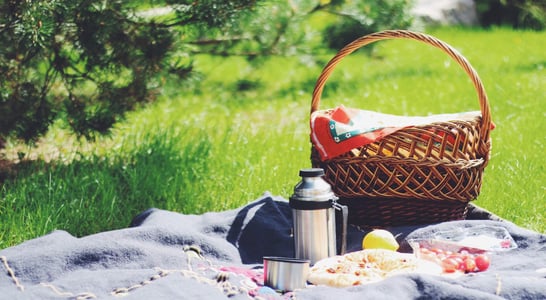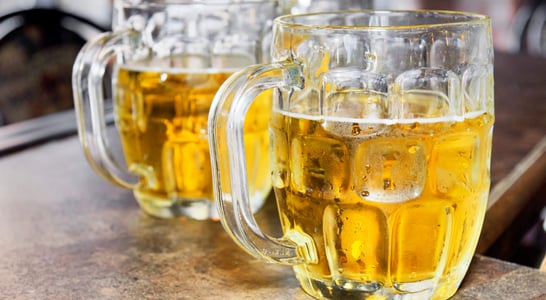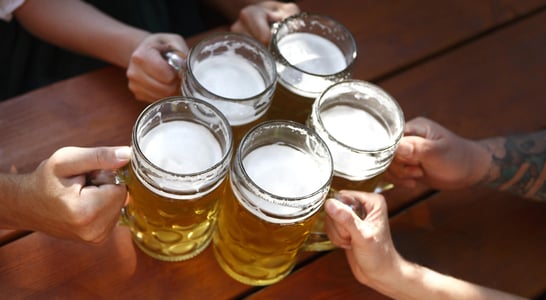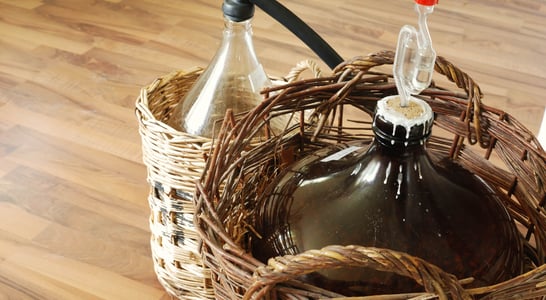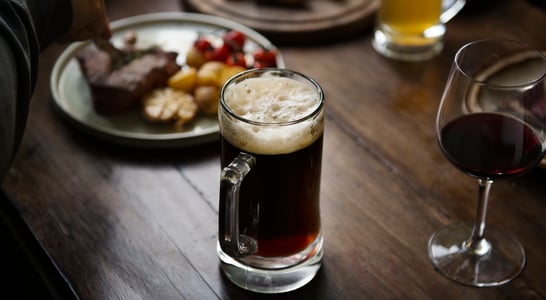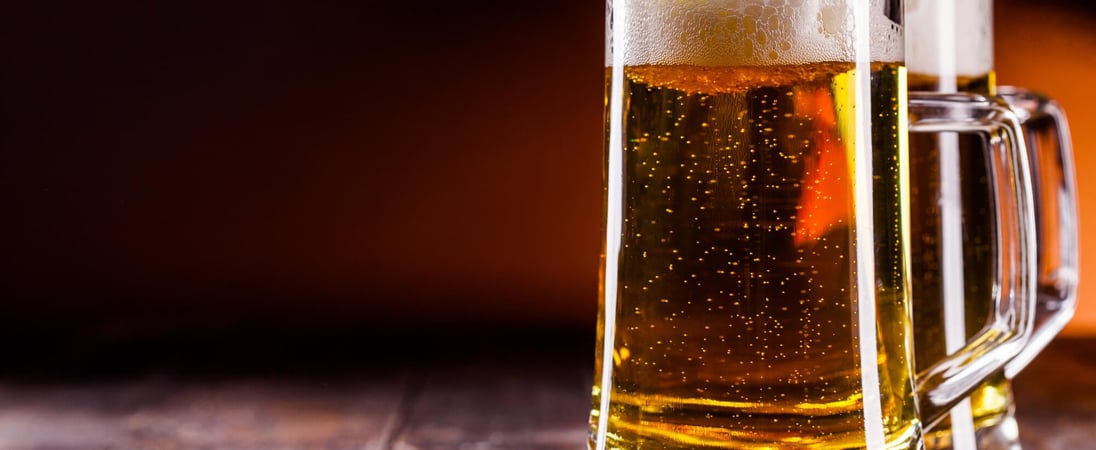
German Beer Day
Many of the best beers hail from Germany, which is renowned for its annual Oktoberfest. Appreciate those malty, rich Hefeweizens and Lagers.
Are you a fan of beer? That delicious, malted beverage with a rich flavor and a thick foam? When your day is coming to an end, are you already dreaming about pulling an ice-cold beer out of the fridge and relaxing with it in your favorite easy chair?
Then you know that many of the very best beers are from Germany, and there’s nothing like a rich German brew to add a little class to even the smallest event!
German Beer Day celebrates the innovation and craftsmanship of German brewers everywhere.
How to Celebrate German Beer Day
The best way to celebrate German Beer Day is to drink some! Pour yourself a tall frothy glass of Helles or, if you prefer something stronger, a sturdy Weizenbock. After a dark rye beer with a texture you could eat with a spoon? Try a Roggenbier. And for something sour, go for a Berliner Weisse.
Visit a Beer Festival
Check out your local area for beer gardens and festivals or book your tickets now for a trip to Munich in the autumn – Oktoberfest is such a popular event that flights and accommodation go fast!
Tour a Brewery
You could also go on a brewery tour to get a behind-the-scenes look at the fascinating brewing process, and they’ll often let you sample some of the produce on your way round!
If that whets your appetite, then how about going beer tasting, where an expert will be able to provide you with a whole variety of beers to sample?
Brew at Home
Homebrewing has long been a popular hobby and is relatively easy to do, so if you’re a real beer lover, why not continue the tradition and give it a go?
Nowadays there are plenty of starter kits available to give you all the equipment and ingredients you need for your very own brand of beer! With so many ways to celebrate this German pastime, what’s your choice going to be? Let’s raise another glass this German Beer Day and drink up – Prost!
History of German Beer Day
Home to the oldest brewery in the world, Germany’s beer quickly became a staple throughout Europe during the Middle Ages when beer was already a very common drink, especially in those areas where growing grapes for wine wasn’t easy.
While it certainly wasn’t consumed more than water (a popular myth based on the idea that microbes like cholera can’t survive in the alcoholic solution), it was decidedly ubiquitous and accessible to every tier of society.
The rich history of German beer has been helped in no small part by the creation of the Reinheitsgebot, the “purity law” issued on 23 April in 1516 that decreed how beer had to be brewed and sold in the state of Bavaria.
The regulation demanded purity, with only water, barley and hops being permitted in the beverage, and aimed to both protect consumers from poor quality, overly priced beer and ensure that there was enough wheat and rye for bread-making.
The law gradually spread throughout the rest of Germany and was adhered to nationwide by 1906. The Reinheitsgebot is the oldest consumer protection regulation still in use, although there have been various modifications and relaxations in recent decades.
For example, it now acknowledges yeast (16th century Germans unaware that it was yeast causing the brew to ferment!) and permits other types of malted grain such as wheat in top-fermented beer.
One establishment, the Neuzeller Kloster Brewery, even won a ten-year legal battle to continue classing their Schwarzer Abt (“Black Abbot”) brand as beer even though it contains sugar.
Despite these amendments, the Reinheitsgebot continues to ensure that German beer remains a pure and high-quality beverage to this day!
Although beer consumption within Germany has actually declined in recent years, exports abroad have grown from strength to strength, with Italy, China and the US being the biggest buyers. German Beer Day is a chance to celebrate the delectable golden stuff all around the world!
Types of German Beer
There are a whole host of German beers to enjoy, from Pilsener, the most popular pale lager, to Kellerbiers (“cellar beers”), dark and unfiltered lagers, from Weißbier and Weizenbier (meaning “white beer” and “wheat beer” respectively), both types of wheat beer, to Märzen, the medium-bodied ale common at Oktoberfest.
And for anyone who doesn’t fancy pure beer, there’s always the option of a Radler, beer mixed with lemonade.
Famous German breweries include Oettinger, Beck’s, Krombacher, Bitburger and Paulaner. And the country, particularly Bavaria in the south east, is home to a multitude of smaller and locally produced brands, with over 1,000 breweries and more than 5,000 types of beer in total.
With this wide range of options, it’s no wonder that there’s also a variety of ways to consume German beer. Although people associate ‘Stein’ with German beer, it was actually a term coined by the English for traditional beer mugs.
Perhaps most well-known in Germany is the Maß or Maßkrug, the liter-sized tankards popular in Bavaria and Austria.
Waiters and waitresses are able to carry whole stacks of them, with the world record holder carrying 27 at once – that’s over 60kg! Other famous drinking implements include the Stange, which usually holds a quarter to a third of a liter, and the Bierstiefel (“beer boot”), which is often used at festivities.
Beer in German Culture
Beer is by far the most popular drink consumed in Germany, and the Franconia region in South Germany has the highest brewery concentration of anywhere in the world! It’s no surprise then that this delicious beverage is central to German culture and is widely celebrated up and down the country.
The most famous event is the largest beer festival in the world, Oktoberfest, which takes place in Munich from late September to early October and sees millions of liters consumed each year.
Revelers wear traditional Bavarian dress – lederhosen (“leather pants”) for men and dirndls (a dress with a tight bodice worn with a blouse and an apron) for women – and sing and dance to traditional oom-pah music in large tents. There are also plenty of other beer festivals across the country.
Beer gardens originated in Germany, now very popular in other countries as well, and there are also various beer houses, such as the famous Staatliches Hofbräuhaus (Royal Brewery) in Munich.
Alongside a refreshing beer, guests can enjoy other German delicacies such as Schnitzel, Bratwurst and Sauerkraut.
German Beer Day FAQs
Who is Gambrinus, and how is he connected to German beer culture?
Gambrinus is a legendary figure often hailed as the patron saint of beer. Some tales suggest he was a mythical king who learned brewing from the Egyptian gods Osiris and Isis.
This association highlights the deep-rooted traditions and cultural significance of beer in German history.
What is the Bergkirchweih festival, and how does it differ from Oktoberfest?
Bergkirchweih is an annual beer festival in Erlangen, Germany, dating back to 1755, making it older than Oktoberfest.
Held during Pentecost, it features beer cellars and a large Ferris wheel, attracting about a million visitors each year.
What is the significance of the Nockherberg Starkbierfest in Munich?
Nockherberg Starkbierfest is a strong beer festival during Lent, featuring the traditional “Salvator” beer. It includes political satire and has been a Munich tradition since the 17th century.
Is Germany the top beer-consuming nation per capita?
Contrary to popular belief, Germany isn’t the top beer consumer per capita. The Czech Republic holds that title, with Germans ranking lower on the list.
What are some misconceptions about the German Beer Purity Law (Reinheitsgebot)?
A common misconception is that the Reinheitsgebot was solely for beer quality. In reality, it also aimed to prevent price competition with bakers for wheat and rye, ensuring affordable bread.
How do Germans traditionally serve and enjoy their beer?
While beer steins are iconic, experts recommend drinking from thin, light glasses to preserve aroma and carbonation. This enhances the beer’s flavor profile.
What is the origin of the “beer boot” drinking tradition?
German drinking games. Its origin is debated, but it’s a popular novelty at beer festivals.
How has German beer influenced global brewing traditions?
German immigrants brought their brewing techniques worldwide, notably influencing American beer culture. Brands like Anheuser-Busch have German roots, showcasing this impact.
What role does beer play in German economic and cultural life?
Beer is a significant economic factor in Germany, creating jobs in breweries and pubs. It’s also a cultural ambassador, with numerous regional festivals celebrating its diversity.
Are there any health benefits associated with German beer?
In moderation, beer contains minerals like calcium and magnesium, and B vitamins. However, it’s not a health drink and should be consumed responsibly.
Need some inspiration?
Check out these videos for some extra inspiration in getting involved!
Also on ...
View all holidaysNational Take a Chance Day
Sometimes it's easy to stick with what we know, but growth often happens when we try new things. Be open to change and embrace the adventure!
National Picnic Day
With a basket full of delicious treats, bask in the sun, breathe in the fresh air, and make beautiful memories with loved ones.
World Table Tennis Day
Join a team, attend an exhibition, or tune in to the pros to catch the fast-moving, skill-heavy game of table tennis, also commonly known as ping pong.
World Book Night
Get lost in an adventure, a romance, a mystery…whatever you like. Gather a group, volunteer at an event, or just take some time to enjoy a book on World Book Night.
We think you may also like...
New Beer’s Eve
Crack open a cold one with friends or family, and toast to the end of Prohibition and the return of yeasty, hoppy, refreshing and delicious beer on New Beer’s Day.
National Drink Beer Day
Sample a new beer, visit a brewery, or just gather friends together to share and discuss one of the world’s most popular drinks.
National Beer Lovers Day
Beer lovers, it’s your day! Try a new beer, visit a brewery or taphouse, or gather friends together to try a wide selection of beers, from lagers to IPAs and more.

